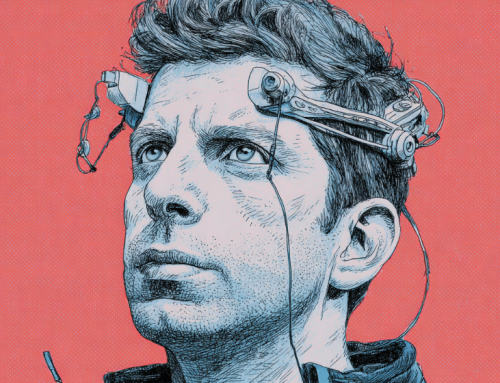
CRISPR-designing AIs, unlike chatbots like ChatGPT that are trained on text, are developed using extensive biological data including protein and genome sequences to understand natural genetic patterns, which is then used to design entirely new genetic sequences. (Source: Image by RR)
From Sci-Fi to Reality: AI-Powered CRISPR Could Rewrite Human DNA
Researchers are making strides in creating new gene-editing tools using generative artificial intelligence (AI), potentially surpassing the capabilities of natural CRISPR systems. A team has utilized a protein language model, trained on millions of protein sequences, to design new CRISPR proteins that demonstrate functionality in laboratory settings. This development, as noted in nature.com, signifies a breakthrough in the ability to design sophisticated gene-editing tools that could address the limitations of naturally occurring systems.
The AI models used for designing these CRISPR systems are trained on vast databases of genetic material, enabling them to generate novel protein and RNA sequences that form effective gene-editing systems. These AI-generated systems include a notable variant called OpenCRISPR-1, which has shown comparable efficiency to widely used CRISPR-Cas9 systems in precise DNA editing while reducing off-target effects. This model represents a significant advancement in the precision and safety of gene-editing capabilities.
In addition to improving the technical performance of gene-editing tools, AI-designed CRISPR systems offer potential for broader accessibility and application. The OpenCRISPR-1 molecule, for instance, is available for unrestricted use, which contrasts with some patented gene-editing tools. This openness could facilitate wider research and development efforts across various scientific fields, including medicine.
The broader implication of AI in gene editing points towards a future where customized gene therapies are more precise and tailored to individual medical needs. As AI technology continues to evolve, it opens up possibilities for developing gene-editing tools that are not only more effective than those currently available but also more adaptable to complex medical applications. Researchers are optimistic about partnering with biomedical companies to test these AI-generated CRISPR systems in therapeutic contexts, highlighting the potential of AI to revolutionize gene therapy.
read more at nature.com







Leave A Comment